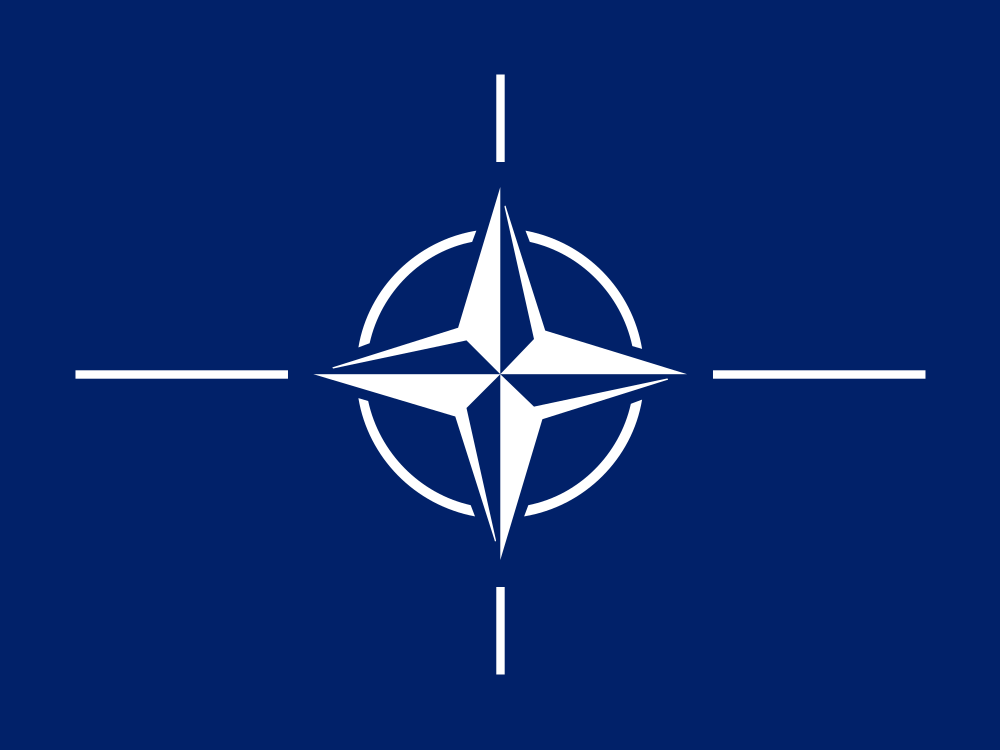Gli USA erano sino a poco tempo fa il più possente ed il più fidato dei nostri amici. Poi hanno iniziato a preferire la “nuova Europa” alla vecchia e ad aumentare conseguentemente la loro ostilità nei riguardi della Russia , del tutto incuranti del danno che ciò poteva provocare ad una “vecchia Europa” per cui Mosca era un partner commerciale importante e che per buona parte proprio da Mosca dipendeva per le sue forniture di gas. Più o meno contemporaneamente si completava inoltre un lungo processo che vedeva il baricentro dell’attenzione statunitense spostarsi dall’Oceano Atlantico al Pacifico , con buona pace di quel ” legame transatlantico” che sino a tempi relativamente recenti aveva trovato nella NATO la sua massima espressione.
Con la scoperta , e lo sfruttamento intensivo dei grandi giacimenti nazionali di shale gas già pienamente avviato , gli USA cessavano inoltre di dipendere dal Medio Oriente per il rifornimento di energia . La reazione del Presidente Obama si concretizzava immediatamente in una nuova dottrina strategica che abbandonava alla totale responsabilità degli alleati europei la gestione di un “Mediterraneo islamico allargato ” in cui proprio in quel periodo focolai gravissimi di crisi iniziavano ad evidenziarsi l’uno dopo l’altro. Proseguivano altresì nel frattempo , e sono tuttora in corso , le trattative per il Ttip (trans atlantic trade and investment partnership) , il Trattato che dovrebbe regolare il futuro degli scambi commerciali fra Ue da un lato ed USA dall’altro . Un negoziato che sempre piu’ evidenzia come , al di la’ di alcuni vantaggi contingenti , lo strumento sia più che altro mirato ad inchiodare permanentemente l’Unione nello scomodo ruolo di fratello minore. Ce ne sarebbe abbastanza per porsi dei dubbi ed iniziare a chiedersi se gli USA amino veramente l’Unione Europea e la considerino come un partner – anzi come “il partner della mano destra” , considerato come noi europei siamo gli unici al mondo a condividere con l’America non soltanto interessi ma anche valori – oppure ci vedano come un possibile competitore , l’unico oltre alla Cina che possa sfidare a scadenza medio breve il loro primato nel mondo. Sono pero’ dubbi e domande che per il momento stiamo accuratamente evitando di porci , forse per la paura di scoprire che stiamo vivendo in un mondo in cui non esiste più una chiara ed indiscutibile distinzione fra amici e nemici. La Turchia e’ considerata una amica da più di sessanta anni , per la precisione da quel momento del 1952 in cui fu accettata come membro dell’Alleanza Atlantica , divenendo il più’ solido fra i suoi isolati pilastri del fianco meridionale. Alla diffidenza iniziale , da un lato basata sul fatto che si trattava dell’unico socio islamico in un club sino a quel momento interamente cristiano e dall’altro mantenuta viva dalla propensione delle sue Forze Armate per i colpi di stato , era poi subentrato a partire dall’ultimo golpe del 1980 un clima di crescente fiducia . Una fiducia che si era spinta sino a considerare seriamente la possibilità di ammettere il paese alla membership della Unione Europea. A tutti gli effetti , anche se tale ammissione non c’e’ stata sino ad ora , la Turchia e’ comunque stata guardata sino ad oggi come una parte a pieno titolo del cosiddetto Occidente. Eppure , ormai da più di dieci anni la Turchia sta cambiando . Radicalmente e rapidamente , anzi forse troppo radicalmente e troppo rapidamente. Al regime dei Generali , che negli ultimi 25 anni del loro potere avevano sostituito ai golpe reali i golpe virtuali – cioè’ la minaccia del golpe , rivelatasi sufficiente a rimettere in riga i reprobi della classe politica – conservando pelo e vizio , ma che in compenso avevano salvaguardato con efficiente ferocia l’eredita’ laica di Ataturk , si e’ progressivamente sostituita la presa di un partito a sfondo sempre più soffocantemente confessionale. All’inizio il cambiamento , che anche l’Unione Europea ha indirettamente favorito , è stato salutato come un affrancamento da una tutela militare non compatibile con la democrazia ed esaltato al punto che si e’ giunti addirittura a parlare di “modello turco” Per l’islamismo moderato.Poi l’aspetto confessionale e’ diventato sempre più forte e la gestione del potere sempre più dura e personalizzata , mentre crescevano esponenzialmente le ambizioni e del paese e della sua classe dirigente.
Oggi la Turchia , pur essendo ufficialmente in pace, sta in realtà’ combattendo due guerra , o per lo meno due battaglie. L’una e’ quella che oppone il mondo sunnita a quello sciita , e in questo quadro rientra certamente l’atteggiamento a dir poco equivoco che Ankara ha sino ad ora mantenuto nei riguardi dell’Isis. L’altra e’ il contrasto in atto per la leadership nel mondo sunnita che la vede impegnata in un braccio di ferro trilaterale con Egitto e Turchia.
Sono battaglie completamente estranee all’Occidente e ciononostante avvalendosi della sua membership della NATO la Turchia ha cercato sin dall’inizio di coinvolgerci a pieno titolo , adducendo i più vari fra i motivi e giocando con abilita’ con almeno un paio di articoli del Patto Atlantico che potrebbero essere invocati in differenti casi. Siamo quindi di fronte ad un chiaro tentativo di farci combattere battaglie che non sono nostre , in cui oltretutto gli oneri di una eventuale sconfitta ricadrebbero pressoché interamente sulle nostre spalle mentre quasi soltanto ai turchi andrebbero i vantaggi di una ipotetica vittoria. Ce ne sarebbe abbastanza per iniziare a porsi dei dubbi e per chiedersi se la Turchia sia ancora da considerare come un paese amico o se invece non sia opportuno assumere nei suoi confronti un atteggiamento più’ distaccato , valutando ove realmente risieda il nostro interesse ogni volta che ci sia una decisione da prendere al suo riguardo. Sono pero’ dubbi e domande che per il momento evitiamo accuratamente di porci , forse anche perché sollevare il problema della Turchia vorrebbe dire porre sul tavolo anche quello di una NATO che occorrerebbe rifondare ex novo. Un problema che nessuno dei membri della Alleanza è ancora pronto ad affrontare. Da quando il Presidente Sadat si libero’ della pesante tutela sovietica negli anni settanta del secolo scorso , l’Egitto è stato per decenni considerato come il miglior amico dell’Occidente nel mondo arabo mediterraneo. Un “custode di Suez ” , cioè di una delle tre porte di ingresso nel nostro mare interno e per di più di quella da cui dipendiamo per scambi con l’Asia in crescita esponenziale , assolutamente affidabile e nel contempo un esempio trainante di moderazione e stabilita’ capace , con il suo solo esempio, di far cessare il periodo dei conflitti pan arabi contro Israele. Il rapporto con l’Italia in particolare si era evidenziato col tempo come un rapporto molto forte , tanto che per un lungo periodo il nostro paese seguiva immediatamente gli Stati Uniti nella considerazione degli egiziani. Da tempo pero’ gli interessi dell’Occidente in generale , quelli del nostro paese in particolare , divergono da quelli del Cairo . Noi avremmo infatti bisogno di riuscire a superare la crisi libica , ricompattando il paese in una organizzazione statale unica e rallentando di conseguenza , o facendo addirittura cessare , il flusso continuo di disperati che raggiungono le nostre rive dall’altra sponda. Per l’Egitto invece questa e’ stata l’occasione buona per estendere , attraverso il cosiddetto Governo di Tobruk , la sua influenza all’intera Cirenaica . Un passo di portata non indifferente , considerato come la massa del petrolio libico proprio in Cirenaica venga estratto. E’ logico , a questo punto , che Il Cairo si opponga con decisione all’ipotesi di un possibile governo di compromesso che riporti il paese alla perduta unita’, una soluzione che invece piacerebbe molto all’Italia. C’e’ da precisare in ogni caso che chi si oppone ufficialmente non e’ il governo del Cairo bensì quello di Tobruk , che ora cerca di inasprire il contrasto lanciandoci anche ingiustificate accuse di violazione delle sue acque territoriali . Dietro l’ombra del Generale Aftar si intravede pero’ con chiarezza in questa vicenda quella molto più grande del Generale El Sisi. Ce ne sarebbe abbastanza per iniziare a porsi dei dubbi e per chiedersi se in effetti l’Egitto non abbia in realtà cessato di essere la nostra precisa controparte politica , il nostro interlocutore preferito , quando non privilegiato , sulla altra sponda del Mediterraneo. Sono pero’ dubbi e domande che evitiamo accuratamente di porci , forse anche perché ciò che risulterebbe necessario al termine di una realistica analisi sarebbe una completa revisione della nostra politica con il mondo arabo , nonché dei nostri rapporti con i paesi che lo compongono. USA , Turchia ed Egitto : sono tre casi utilizzati come esempio di paesi che non possono più essere considerati sempre e con sicurezza come paesi amici ma che dovremmo invece valutare momento per momento , volta per volta , in stretta connessione con l’obiettivo che noi e loro vogliamo conseguire nella specifica contingenza.Se poi si passa dai paesi amici a quelli che un tempo erano considerati nemici , la Russia , la Cina , l’Iran…la conclusione risulta assolutamente speculare. Rendiamoci quindi bene conto di come si sia aperta una nuova epoca nelle relazioni internazionali , altrimenti rimarremo la solita Italia di cui gli USA e gli altri amici di un tempo non richiedono mai l’appoggio nei momenti di particolare tensione e di decisioni gravi perché tanto l’appoggio italiano in casi simili è sempre dato per scontato. Per dirla con la terminologia anglosassone :” Italy? Italy is taken for granted !”
Old Friends, New Enemies
There are doubts and questions that for the moment we are carefully avoiding. Perhaps we fear to discover that we are living in a world in which there is not a clear and indisputable distinction between friends and enemies.
Until recently the USA were Europe’s most powerful and most trusted friend. Then the US has started to prefer the “new Europe” (made of former Soviet Block countries such as Poland, Latvia, etc. etc.) to the old one and it has consequently increased its hostility toward Russia, without considering the damage it could have caused to the “old Europe” for which Moscow was a major trading partner and the major gas supplier. More or less simultaneously the US focus has moved from the Atlantic Ocean to the Pacific, despite the “transatlantic bond” that until relatively recent times had found in NATO its maximum expression. With the discovery and the intensive exploitation of large national shale gas oilfields, the USA stopped to depend on the Middle East for its energy supply thus slowly disengaging from the Mediterranean area. In the meantime, negotiations for the TTIP (trans-Atlantic trade and investment partnership) were proceeding. The TTIP is the treaty that should regulate the future of trade between EU Member States on the one hand and US on the other. A negotiation that increasingly highlights how the treaty is more aimed to confine permanently the EU to the uncomfortable role of younger brother. We should wonder if the USA considers the EU as a trustworthy partner or if they just think of the EU as a potential competitor.
Turkey has been considered as a friend country for more than sixty years, starting from 1952 when it has been accepted as a member of the Atlantic Alliance. The initial mistrust was based either on the fact that it was the sole Islamic member of the club that up to that moment was entirely Christian, or on the propensity of its armed forces to commit coup d’état. Later on, a climate of growing confidence followed the last coup in 1980. A trust that was pushed up to seriously consider the possibility of allowing the country to obtain the membership of the EU. Until now, even if this admission never happened, Turkey is still seen as a part of the so-called West. Despite that, nowadays Turkey is changing radically and rapidly. The regime made up of generals that fiercely had defended Ataturk’s legacy, has been gradually replaced by a party characterised by a religious background. At the beginning, the change that even the EU had indirectly facilitated had been seen as a deliverance from a military protection not compatible with democracy and exalted to the point that it had been called the “Turkish model” for the moderate Islamism. Then the religious aspect has become increasingly stronger and the management of power increasingly harsh, while grew exponentially the ambitions of the country and its ruling class. Today, Turkey, although it is officially at peace it is actually fighting two wars or at least two battles. On one hand we have the Sunni reality in conflict with the Shiite one, also caused by the ambiguous attitude adopted by Ankara towards the new eastern movement, the Isis. On the other hand, there is the interests in leading the Sunni world that put it in a trilateral conflict with Egypt and Turkey. These battles are completely unknown to the Western countries. However, being member of NATO, Turkey has been trying from the beginning to involve us at full title, cleverly referring to a couple of articles from the Atlantic Pact which might fit in different cases. We are therefore called up to fight a battle that is clearly not ours, in which the costs of a possible defeat would almost entirely fall on our shoulders, whether just Turkey would benefit from an hypothetical victory. These are sufficient elements to start doubting and questioning whether Turkey is still to be considered as a friendly country or whether it would be more appropriate to take some distance; we should always consider our interests each time we are asked to take a decision. These are doubts and questions that for the moment we keep for ourselves as if we want to face the problem of Turkey we should also take into consideration the NATO itself, which would need to be completely reformed; a problem that none of the members of the Alliance are yet ready to tackle.
Since the President Sadat set himself free from the heavy soviet protection of the seventies, for decades Egypt has been considered as the best alliance in the Mediterranean Arab world. A “guardian of Suez”, one of the three accesses to our inland sea. It controls the doorway on which we increasingly depend when trading with Asia. It is absolutely reliable and, at the same time, a leading example of moderation and stability that with its only example helped quitting the confrontation from the Arabs against Israel. The relationship with Europe has been strong over time, so much that for a long period our country immediately followed the United States among those countries sympmathizing for the Egyptians. However, by this time the interests of the West in general, and those of our country in particular, differ from those of Cairo. We in fact need to be able to overcome the Libyan crisis, reuniting the country in a unique state organization, and consequently diminishing or even arrest the continuous flow of desperate people that reach our shores from the other side of the Mediterranean. For Egypt however this has been a good situation to extend its influence to the entire Cyrenaica through the so-called Government of Tobruk. A strategic step considering the amount of oil Libyans were extracting in Cyrenaica. It is obvious at this point, that Cairo is strongly opposing to the hypothesis of a possible government of compromise that would return this rich region to Libya, a solution however that would be greatly appreciated in Europe. What should be specified is the fact that officially contrasting this step back is not the Cairo government but instead is the Tobruk government, which now is trying to exasperate the situation by accusing Europeans of violating its territorial waters. That would be enough to start questioning whether Egypt is still our political counterpart, our preferred bridge to the other side of the Mediterranean, if reacting this way while not being completely privileged.
There are doubts and questions that we sometimes prefer not to think about, maybe because a realistic analysis would bring us to reconsider our politics with the Arab world and with those countries that are part of it.
USA, Turkey and Egypt: these are three cases we could use as an example of countries that may not be regarded as friends as we used to, but we should instead assess each time case by case, in tight connection with the final goal that we and them want to achieve in each specific occurrence. If we then pass from the friendly countries to those that were once considered as enemies such as Russia, China, Iran the end-conclusion is absolutely symmetrical. Let’s then realize how it just begun a new époque of international relationships, or we actually run the risk of remaining the same old Europe who is never involved by the USA and our other alliances in crucial decision-making as our support is always assumed as conceded. So to speak “Europe? Europe is given for granted!”



















Lascia un commento